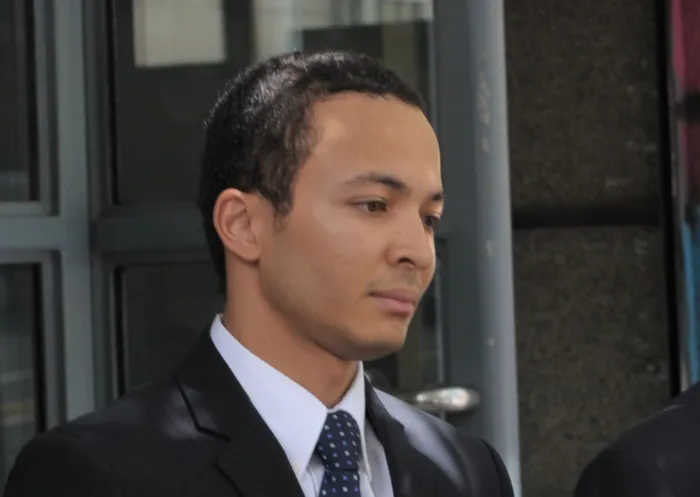Mandela crash case postponed

Sizwe Mankazana, outside of the Johannesburg Magistrate court after his court case was postponed. Sizwe is been charged with murder after Nelson Mandela's great granddaughter was killed in a car accident. Mankazana who was allegedly under the influence was driving the car. Picture: Mujahid Safodien Sizwe Mankazana, outside of the Johannesburg Magistrate court after his court case was postponed. Sizwe is been charged with murder after Nelson Mandela's great granddaughter was killed in a car accident. Mankazana who was allegedly under the influence was driving the car. Picture: Mujahid Safodien
Johannesburg -
The culpable homicide trial resulting from the death of former president Nelson Mandela's granddaughter was postponed by the Johannesburg Magistrate's Court on Monday.
The cross-examination of a accident specialist Craig Proctor-Parker from the Road Traffic Management Corporation will continue on Wednesday.
He testified that excessive speed led to the death of 13-year-old Zenani Mandela.
Sizwe Mankazana, 25, faces a charge of culpable homicide and reckless and negligent driving.
A friend of the Mandela family, he was taking Zenani home from a World Cup concert on June 11, 2010.
He was driving his father's Mercedes-Benz on that night and was heading to Sandton when it crashed into a barrier.
Zenani, who was in the back seat, was killed. Mankazana and another passenger were slightly injured and neither went to hospital.
The vehicle had hit a steel barrier, which penetrated the car.
Proctor-Parker told the court the car was travelling at an estimated speed of 162km/h when it crashed on a bend on the M1
freeway. The speed limit on that portion of the freeway is 80km/h.
The court heard that skidmarks were usually measured with instruments to calculate the speed of a car.
Proctor-Parker confirmed he had not used any instruments to make his calculation, but had used his “naked eye”.
“No, because it does not make a difference,” Proctor-Parker said in response to questions by defence advocate Kenny Oldwadge.
The court heard that the car was in good condition, all the brakes were working, it had been serviced in 2009 and it was roadworthy.
He said road conditions were good, the road was well-lit, and there were no potholes.
It was determined that all three occupants were wearing seatbelts.
Proctor-Parker said no environmental factors had contributed to the accident, and gave a detailed account of the damage to the car, tyres, road and barrier. Photographs of the scene and the car were handed in as evidence.
Suggestions that a flat tyre may have caused the accident were dismissed by Proctor-Parker, who said there was no evidence of a flat tyre.
Zenani's grandmother Winnie Madikizela-Mandela and other family members sat in the public gallery.
Mankazana, who wore a suit, jotted down notes while the witness testified.
Oldwadge asked Proctor-Parker on his work and academic qualifications.
The court learnt that he did not have a diploma in mechanical engineering, but had attained a technical certificate on vehicle mechanics.
Oldwadge asked him why an instrument had not been used to determine the speed of the car, and why he had visited the scene only on June 12, 2010, the day after the accident.
Proctor-Parker said the scene had not been properly secured and that measurements of the skidmarks had not been correctly done. - Sapa